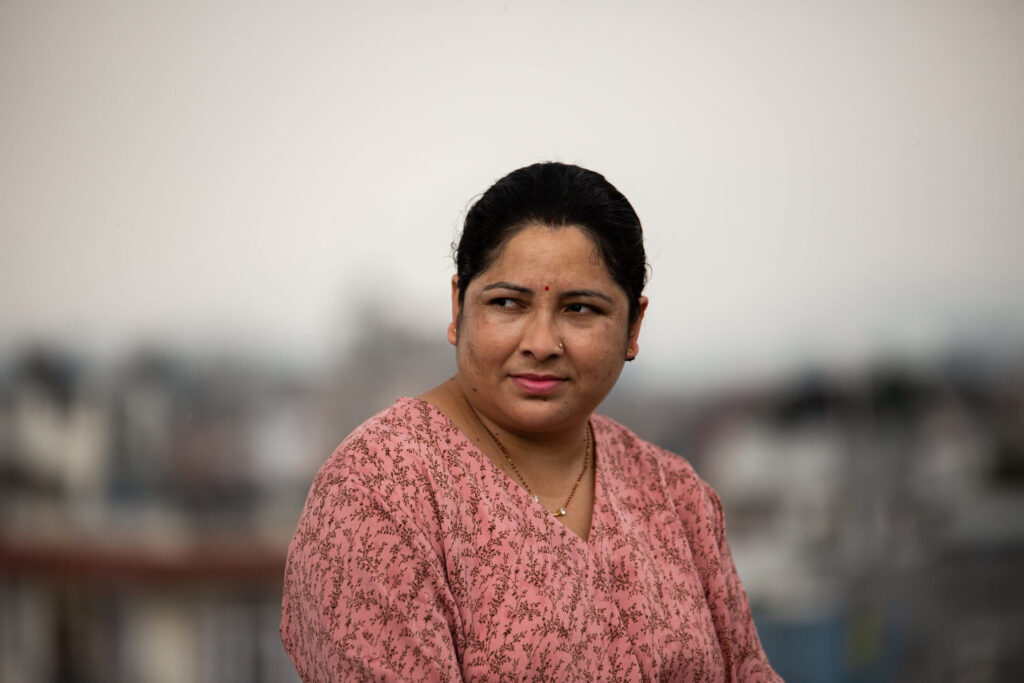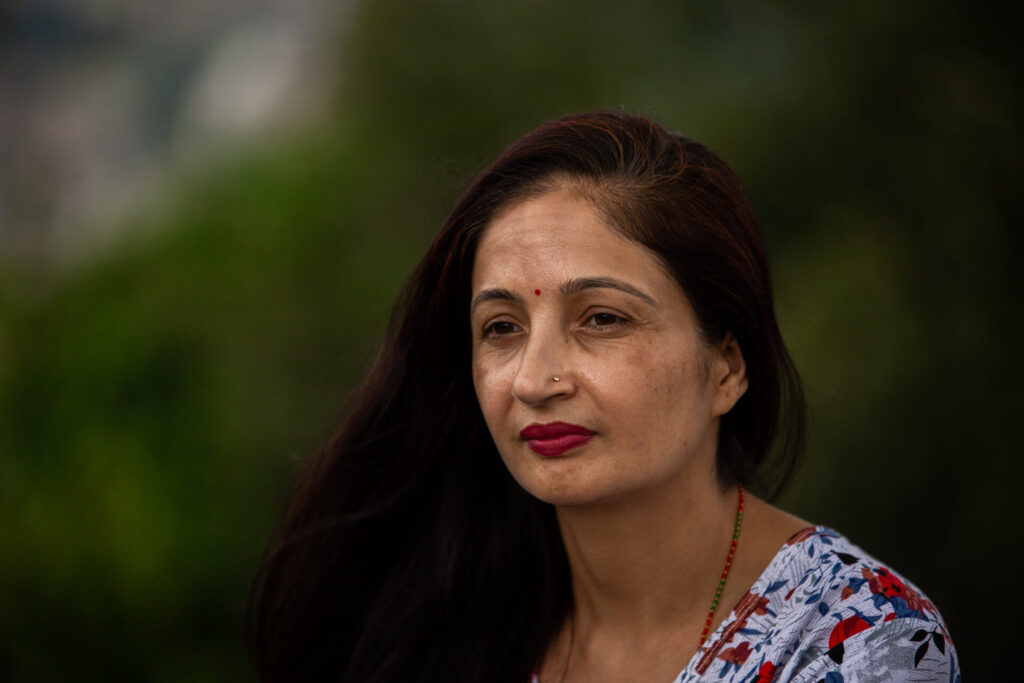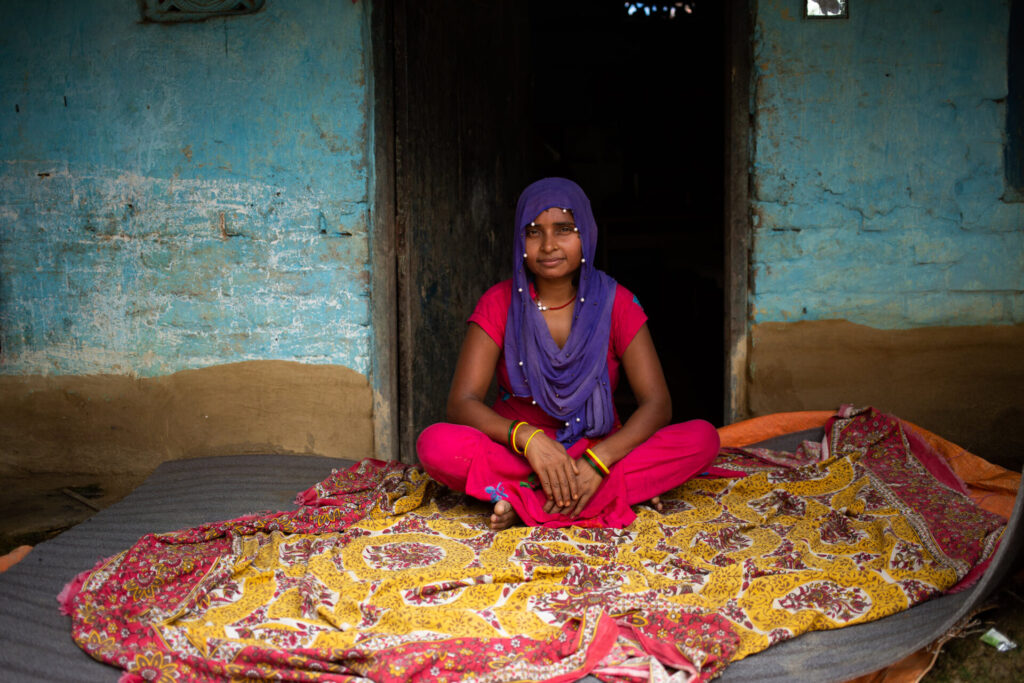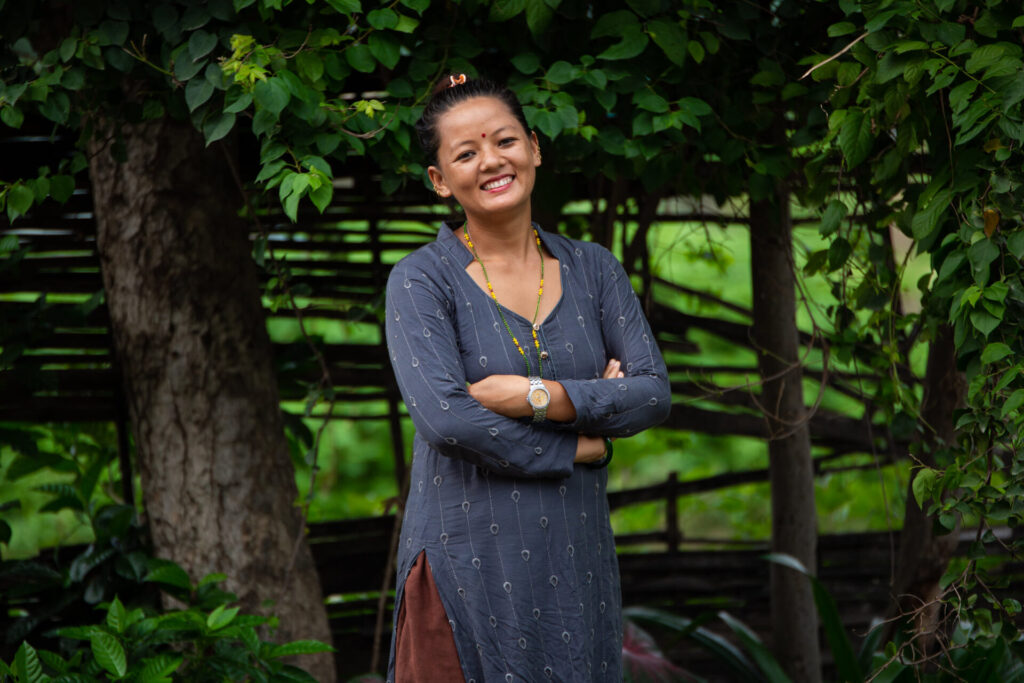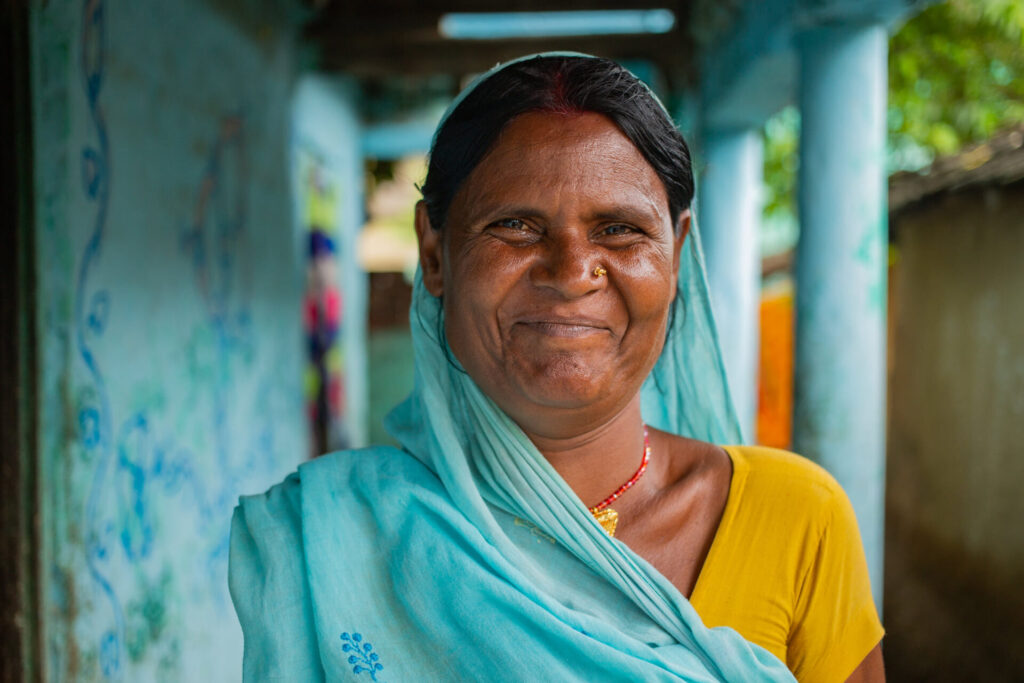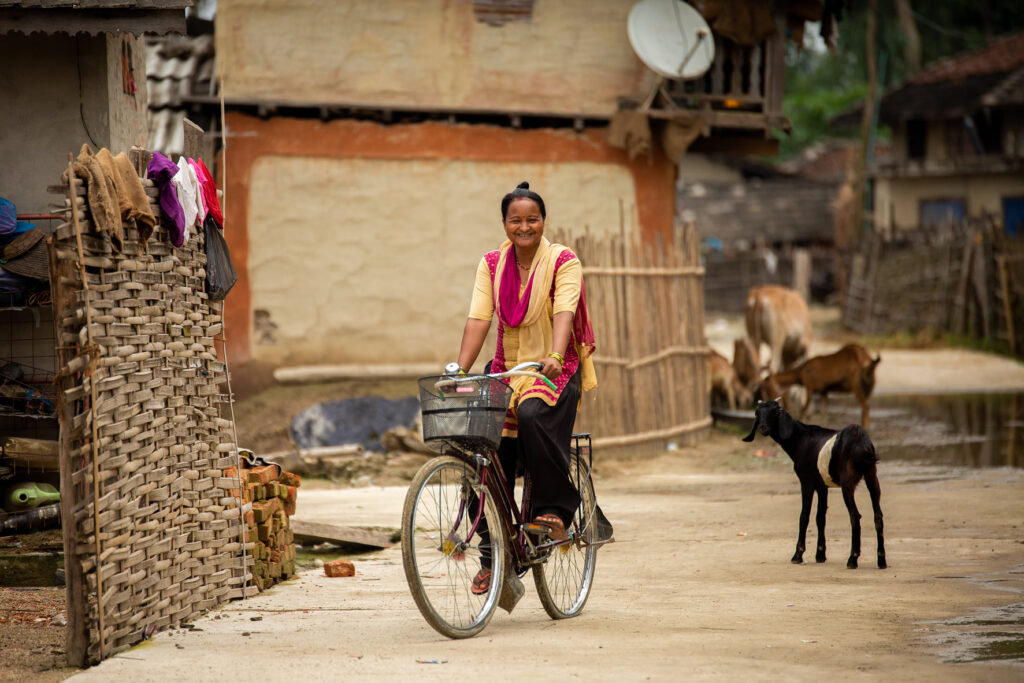
“At 14, tired of seeing the suffering at home, I ran away to Kathmandu and found work at a garment factory. Life was no better. We were treated like slaves and even beaten. Somehow, I escaped from there and ended up in the streets, sleeping inside sacks. People would call me mad, a beggar. My clothes were really worn out and I wouldn’t retaliate. But you know what hunger does. I somehow found work at another garment factory. One day I messed up a design and as I was redoing it, I lost an eye to the sewing knife. Lost and angry, I returned home. I had turned 17 or 18 and so I got married. Now, I had added responsibility. Once again, I returned to Kathmandu and worked as a coolie carrying vegetables. I toiled for 3 years carrying and selling vegetable in the morning and laying bricks during the day. One day a fellow worker, suggested we go to Khasa for a break. On our way back the bus we were on fell to the river and I broke my spinal cord which rendered half my body paralyzed. After a few months at the rehabilitation centre, I went back to my village. People started calling me names. They started eyeing my wife, making remarks. I had lost my legs but I was not dead. So once again, with 50 rupees in my pocket and on my wheel chair, I left my village to test my destiny, to try my luck. I went to Khasa and met a businessman who felt sorry for me and offered me a job. I had to cross the border to China and bring in mobile phones. And for each trip they paid me 1000 rupees. After 5 months I managed to save 50000 rupees and bought some gold for my wife and my mother. I had slowly started seeing some light in my life, the end of sufferings. But I always felt I needed to do something for people who were different. Who functioned in a different way. I wanted to tell them to live their lives with dignity and that it is possible only when you get out of your bed and do it. So with a help my rehabilitation centre and few other people, I wheel-chaired from Kathmandu to Lumbini, spreading awareness to villagers about safety, love and concern and about possibilities. On the 26th day, I reached Lumbini. They welcomed me and checked my into this hotel, that looked like heaven. I had never seen anything like that in my life. The room, the bed, you know. They bought in so much food. I ate, constantly worrying about how I was going to pay for all that. The next morning, I somehow managed to ask for the bill but the hotel manager said, ‘Everything has been paid for, you did a great thing, you are a good person, so don’t worry’. I left the hotel, crying, in happiness, thinking of my mother who sold alcohol to raise me, wishing she was there.” (Ram Bahadur Tamang, Kavre)
______________________
You can help build transitional shelters to Nepal Earthquake Survivors by donating to the Stories of Nepal Earthquake Recovery Fund.
igg.me/at/sonerf
